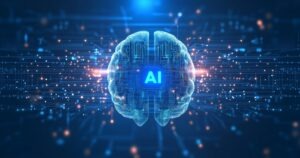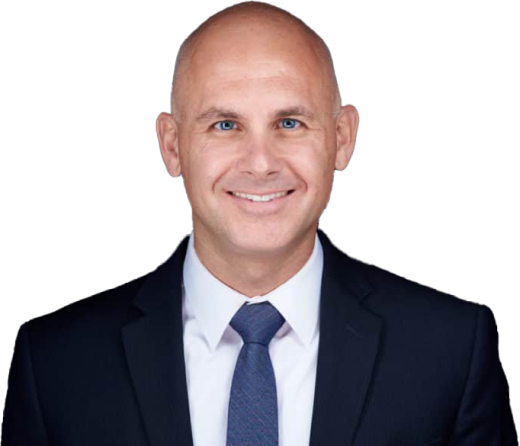
As AI continues to change how legal services are delivered, many firms are rethinking workflows and staffing. Legal tech now offers tools that assist with everything from document summaries to deadline tracking. But even with these advancements, one truth remains: no machine can replace the insight, judgment, and human connection that experienced paralegals bring to legal practice.
This view is reinforced by Matthew Pfau, a partner at H&P Law and a seasoned Las Vegas personal injury lawyer. In a recent statement shared through the Paralegal Institute, where he also serves as an instructor, Pfau challenged the growing assumption that AI will soon take over paralegal work entirely.
His message is clear—technology should empower paralegals, not eliminate them.
What AI Can Do and What It Can’t
Artificial intelligence is well suited for routine, rules-based tasks. Platforms can draft basic contracts, summarize case law, and automate document formatting. These features save time and reduce administrative overhead.
But as Pfau points out, the core of legal work involves nuance, emotion, and ethics. These are areas where AI consistently falls short. AI does not understand client distress. It cannot read a room during negotiations. It does not grasp the implications of filing a motion a day too late or choosing the wrong wording in a settlement letter.
These judgment calls are where paralegals shine.
Understanding the Real Role of Paralegals
One of the most damaging misconceptions in modern legal operations is that paralegals are little more than glorified data processors. In reality, high-performing paralegals operate as strategic partners. They track timelines, manage case flow, coordinate with clients, and serve as a critical line of defense against errors and oversights.
As Pfau noted in the Paralegal Institute’s public remarks, replacing a paralegal with AI may seem efficient on paper, but in real-world legal settings, it often leads to greater risk, not less.
Six Reasons Paralegals are Still Essential
Pfau identified six specific areas where paralegals provide value that AI cannot match:
- Strategic alignment: Paralegals anticipate attorney needs and align their support with case strategy, not just data inputs.
- Precision under pressure: They understand the consequences of mistakes and maintain accuracy under tight deadlines.
- Tech leadership: Rather than being replaced by tools, paralegals are often the ones managing and optimizing them.
- Human communication: From calming upset clients to clarifying legal language, emotional intelligence plays a daily role.
- Ownership mentality: Skilled paralegals take initiative, reprioritize tasks, and treat each file with personal accountability.
- Ethical judgment: Confidentiality, privilege, and procedural compliance require human discernment, not automation.
These points, outlined in detail by Pfau through the Paralegal Institute, highlight how the most effective legal teams will blend technology with trusted human oversight.
Paralegals Power High-Stakes Personal Injury Litigation
At H&P Law, paralegals do far more than file motions or draft letters. In complex personal injury cases—from semi-truck crashes to defective product claims—paralegals support every phase of litigation. They collect medical records, coordinate expert witness communication, and manage timelines for court filings and discovery.
When cases involve millions of dollars in damages or life-altering injuries, there is no margin for error. It is the paralegal who ensures that every piece of evidence is documented, every deadline is tracked, and every client gets timely updates on their case.
In many ways, paralegals are the backbone of case preparation. Their ability to combine legal knowledge with logistical discipline helps attorneys stay focused on strategy and trial work.

Contingency Work Demands Trusted Professionals
H&P Law operates on a contingency fee basis. That means clients pay nothing unless the firm wins. In this model, efficiency and trust are not just helpful—they are mandatory.
AI can speed up paperwork, but it cannot vet a witness statement for credibility or decide how to handle sensitive injury documentation. Paralegals, on the other hand, know how to manage those details with professionalism and care.
They are also trained to spot inconsistencies in records, manage attorney calendars, and coordinate with opposing counsel—all tasks that demand intuition, discretion, and experience.
For firms that handle high-volume or high-value cases, paralegals serve as both quality control and client care specialists. Their contributions directly impact both case outcomes and firm reputation.
Why Empowerment Wins Over Replacement
AI is not going away, and that is not a bad thing. When paralegals are trained to work with AI, their capabilities expand. Tasks that once took hours can now be completed in minutes, leaving more time for strategic, client-facing work.
“The future of legal practice isn’t about replacing people with AI,” Pfau explains. “It’s about equipping the right people with the right tools.”
His advice to legal decision-makers is simple: invest in paralegals, give them access to emerging tools, and recognize their irreplaceable role in legal operations. Trying to cut corners by removing the human element is not innovation—it is malpractice waiting to happen.
Courtroom Proven. Client Praised.
At H&P Law, our litigation teams have recovered more than $100 million for injured clients, including multimillion-dollar settlements in truck crashes, theme park injuries, and complex product liability claims.
Our success is built not just on attorney experience, but on the dedication and skill of our entire legal team—including the paralegals who power our work behind the scenes.
With over 60 years of combined experience, our team understands that legal excellence means pairing cutting-edge tools with trusted professionals. AI may help us work smarter, but it is our people who deliver real results.




